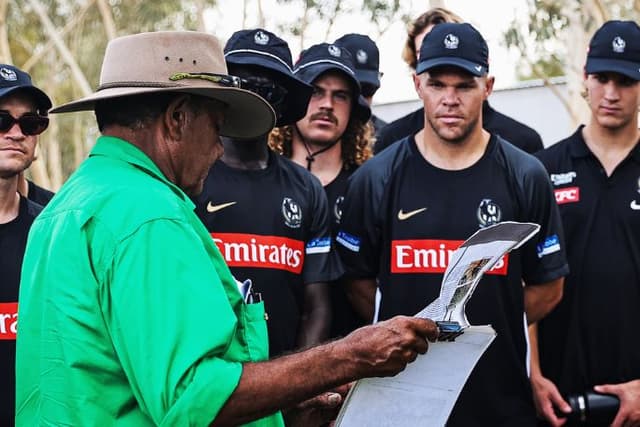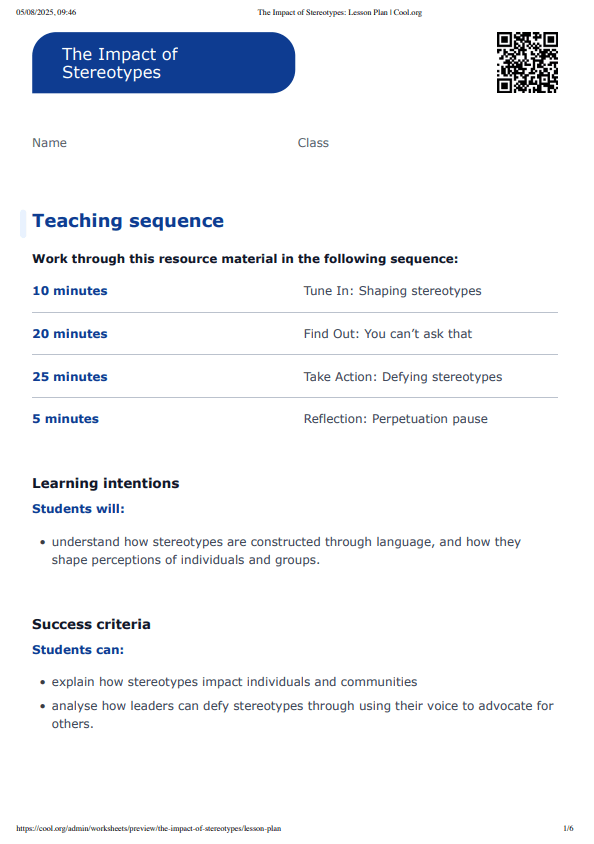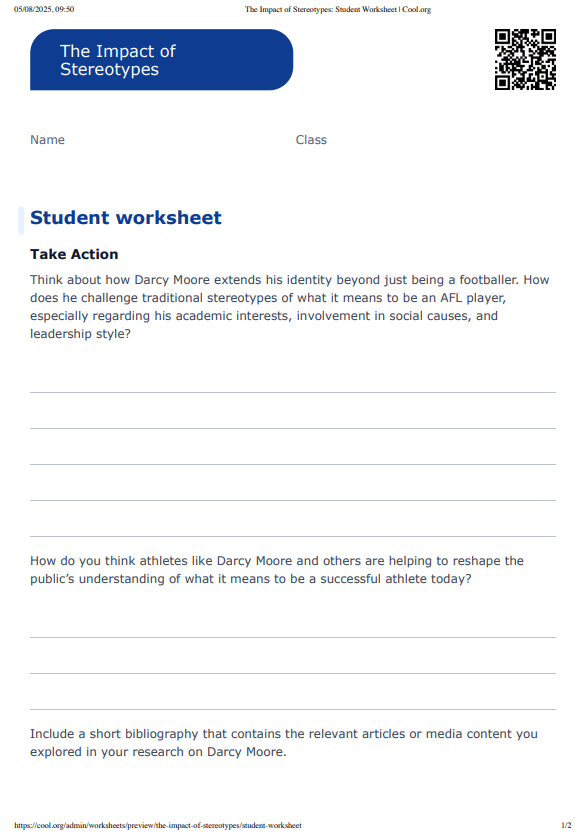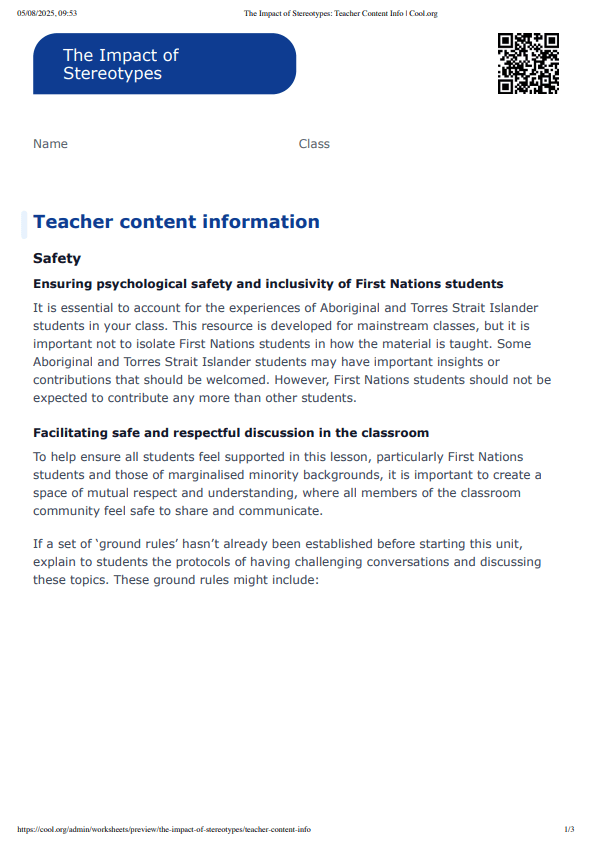Learning intentions
Students will:
- understand how stereotypes are constructed through language, and how they shape perceptions of individuals and groups.
Success criteria
Students can:
- explain how stereotypes impact individuals and communities
- analyse how leaders can defy stereotypes through using their voice to advocate for others.



